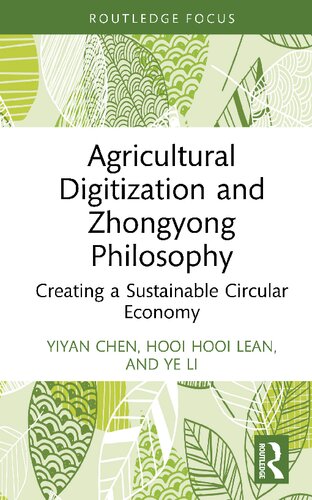

Most ebook files are in PDF format, so you can easily read them using various software such as Foxit Reader or directly on the Google Chrome browser.
Some ebook files are released by publishers in other formats such as .awz, .mobi, .epub, .fb2, etc. You may need to install specific software to read these formats on mobile/PC, such as Calibre.
Please read the tutorial at this link: https://ebookbell.com/faq
We offer FREE conversion to the popular formats you request; however, this may take some time. Therefore, right after payment, please email us, and we will try to provide the service as quickly as possible.
For some exceptional file formats or broken links (if any), please refrain from opening any disputes. Instead, email us first, and we will try to assist within a maximum of 6 hours.
EbookBell Team

4.7
46 reviewsThis interdisciplinary book combines digital technology with Eastern philosophy to examine how the concept of Zhongyong in Confucianism can be used to coordinate digital technology with sustainable agriculture.
Zhongyong comes from the connotation of moderate and sustainable in ancient Chinese culture. It is with this concept in mind that this book presents a novel collaboration between philosophy and computer technology to explain how Zhongyong can play an important part in realizing agricultural digitization within a circular economy in order to help solve the current food crisis. The book examines two popular, yet contradictory, digital technologies―blockchain and the green data center. It showcases how the use of traditional Chinese Zhongyong can promote the decentralization of blockchain and the centralization of the green data center and explains the advantages of using both technologies simultaneously. The book puts forward a digital circular agricultural framework that embeds both blockchain and the green data center through an actual case study. While this book specifically focuses on agriculture, it also provides readers with a new perspective for thinking further on how to break down the disciplinary barriers between the social sciences and natural sciences.
This book will be of great interest to students and scholars of agriculture, digital technologies, circular economy, sustainable development, and Eastern philosophy.